Safiah and young family among millions trying to keep hunger at bay in Yemen
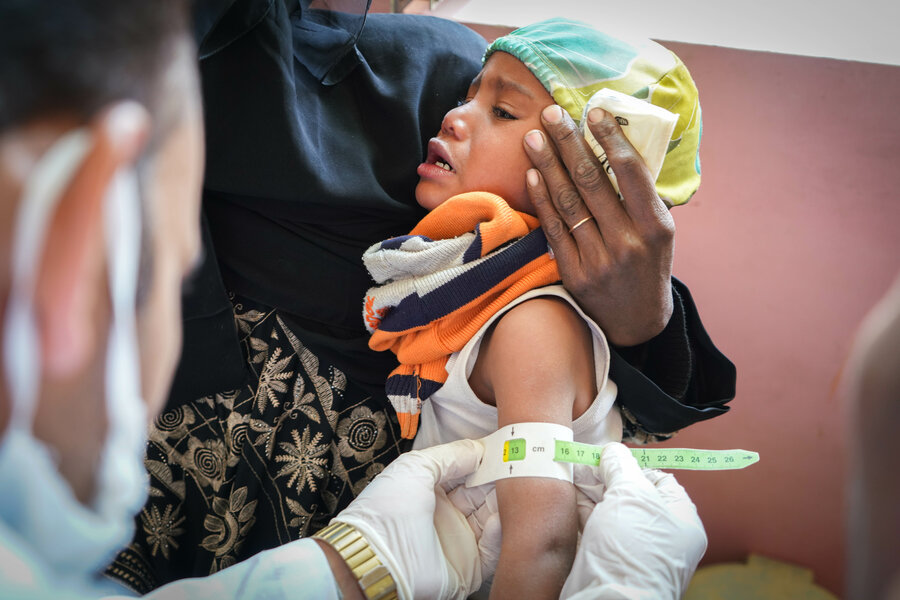
“Our children are more important than us,” says Safiah, who often skips meals so her children can eat. “I do not feel hungry when my children have their meal … if they are full, I feel full, and if they get sick, I get sick, too.”
In the summer of 2020, Safiah watched in agony as her son, Sultan, became acutely malnourished. Severe acute malnutrition – or SAM – is one of the most dangerous forms of hunger. Safiah’s husband, Arafat, was struggling to find work at the time as COVID-19 ravaged war-torn Yemen and the family could barely afford two meals a day.
At a mere 13 months, baby Sultan was at risk of losing his future. Fortunately, Sultan’s family, who fled to Sana’a after being displaced from Al Hodeidah by Yemen’s war, live near a nutrition clinic supported by the World Food Programme.
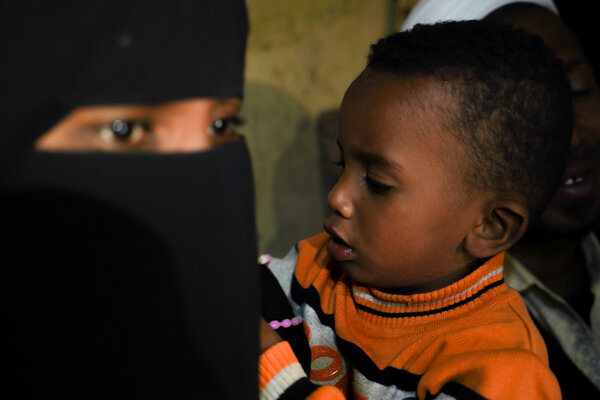
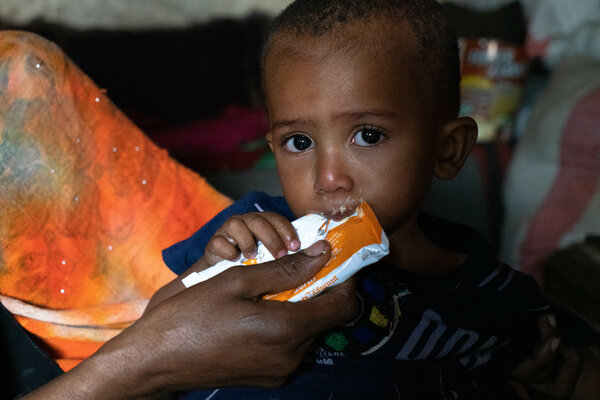
Safiah and Arafat took Sultan to the clinic where he was enrolled in WFP’s malnutrition treatment programme. With regular nutrition support, Sultan slowly began to improve. By September 2020, he was classed as a case of moderate acute malnutrition – an improved state but still a serious form of malnutrition that can impair a child’s physical and cognitive development. Then, to his parents’ great relief, in early 2021 he was discharged from the programme a healthy child. Now he is monitored at the clinic every three months.
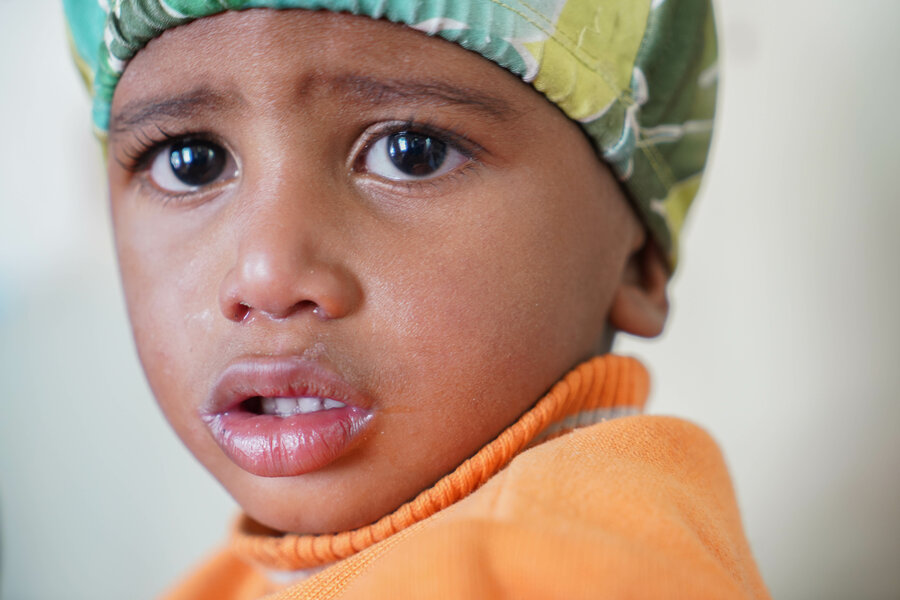
“When the doctor told me that my son had recovered I was relieved and very happy,” says Safiah. “At that moment, I wanted to hug my son tightly and now he laughs with me. Now, thank God that he is well, and I sleep at night a little bit.”
The threat to Sultan and his siblings remains, however. A critical shortage of funds means WFP can only provide the family with food assistance every two months instead of the usual one, meaning Sultan, his brother and two sisters remain at risk of hunger.
Their ration of flour, dried beans, oil, sugar and salt lasts four weeks — six if their father gains the odd shift, most recently as a motorbike rider or a masseuse in a hammam.
Sultan also receives a peanut-based, ready-to-eat nutritional supplement, to make sure he doesn’t relapse and become malnourished again.
”If I have money, I start by buying food before anything else. Food such as vegetables, rice, fish,” explains Arafat. “I care about [my family] as much as I can, more than I care about myself.
Yemen is heading toward the biggest famine in modern history, WFP Chief warns UN Security Council
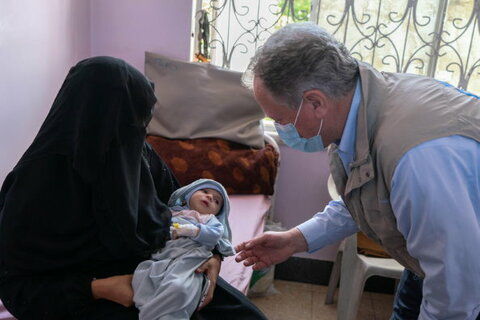
"For example, if I wished to take anything for myself, I do not take it. Even if I work outside the whole day, I do not buy lunch.” It is not unusual for Safia to skip meals too, so her children can eat.
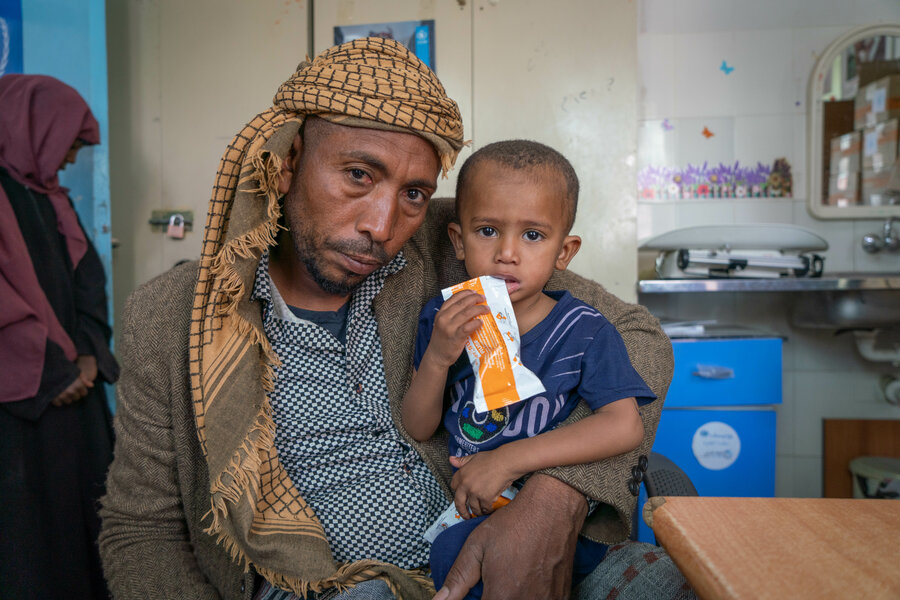
Yemen today stands on the precipice, with six years of conflict taking a devastating toll on millions of people. A total 50,000 are facing famine-like conditions, with 5 million a mere step away from this worst-case scenario. A further 11 million people are facing crisis levels of food insecurity. In 2021, around half of all children under 5 in Yemen – 2.3 million – are projected to face acute malnutrition like Sultan.
Such is the desperate plight of millions, that Safia and her family feel they are in a slightly better position than countless others. “When I call my family in Al Hodeidah, they tell me about the real suffering of hunger, and they do not find food for some days,” she says.
Safia and her family fled Al Hodeidah in 2015. Arafat had been working 13-hour shifts in a warehouse. Life was hard and he would barely see his family. But at least he was able to put food on the table.
Then war broke out, closing schools and collapsing the job market. All the warehouses closed down and along with them the family’s only source of income. They headed east to Sana’a, where they now rent a single room for the equivalent of US$70 per month.
The greatest concern Arafat and Safia have is the health of their youngest and most vulnerable child. They want to be able to look ahead and take it for granted that Sultan will be assured of his next meal – and of his future.
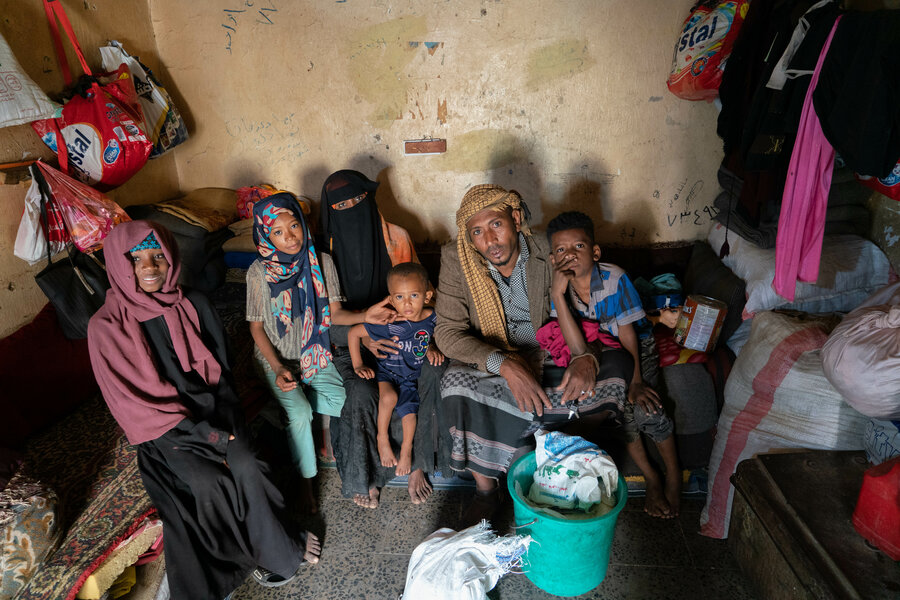
Safia also worries for her children’s education and future prospects. Her own mother supported her through high school, and she hopes she can do the same for her children, who are now attending school again. Sultan will join them when he’s old enough.
“I studied and graduated from secondary school, but I wish that my children fulfil what I could not achieve,” she adds. ”That is, they graduate and finish university and recompense us for the pain we have had.”
To prevent famine in Yemen, WFP needs at least US$1.9 billion in 2021. WFP urges all donors to step up and continue to fund humanitarian operations as generously as in past years. A famine was averted in 2019 thanks to the international community’s support, which allowed WFP to scale up assistance by over 50 percent.
WFP’s nutrition programmes – which aim to reach 3.3 million children and mothers this year with supplements to both treat and prevent malnutrition – are supported by USAid, KSrelief, Germany, Canada and Japan. But right now, unless more funds are received, WFP faces critical pipeline breaks to its nutrition programmes from July.
